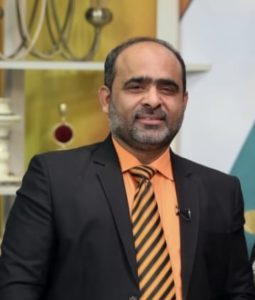
Over periods of time, different cultures develop certain customs, rituals and medical practices. The history of traditional medicine dates back thousands of years even before the advent of modern medicines. According to WHO, 80% of the developing world population rely on traditional medicines which is either the main or sometimes the only source for treating the disease. There are growing concerns about the side effects of certain drugs and therefore more and more people across the world are becoming interested in the alternative and safer way to treat a disease and promote health. Recently, Chinese scientist got the noble prize for finding out the treatment for malaria through Artemisia, a medicinal plant.
Folk medicines have deep roots in Pakistan. Medicinal plants play a significant role in fulfilling the health vacuum in the country. Different traditional methods are applied by the local traditional medical practitioners. The most popular systems practiced in the region are the “Greek medicines”, “Greeco-Islamic medicines” and “Prophetic medicines/Tibb-e-Nabwi”. All involve the administration of herbs or their combination to treat the infections. Locally known as “Hakeem” or “Pansaari” have contributed significantly to society in terms of educating the next generation, influencing the cultural norms and providing an economical next door healthcare facility.
Pakistan enjoys a unique position in the developing countries in terms of medicinal plants. The country is blessed with numerous topographical and ecological zones which makes a significant contribution the rich and fascinating biological diversity. The elevation of land ranges from “0 meter to 8611 meters”, making Pakistan ideal climate for the biodiversity to thrive. In spite of colossal resources, Pakistan is yet to have a global impact in traditional medicines.
National Council for Tibb (NCT) aims to regulate the profession of traditional medicines to meet the demands of patient centered healthcare. We are looking forward to take steps to reduce the trust deficit among the general public and traditional practitioners by proper registration of the local practitioners, increasing awareness and revising the setup to more scientific and evidence based. NCT will take measures for the quality control and quality assurance. An important function of NCT is to train and facilitate the local practitioners. NCT vision is to knowledgeable, skilled and caring hakeems committed to improvement of human life, provide superior services to its patients through clinical innovations and ethical values at an affordable cost.
We call for stronger collaborations the involve governments, donors, the private sector and relevant stakeholders to take forward this important undertaking of traditional medicine R&D. NCT will provide an excellent opportunity to the stakeholders, folk medicine practitioners, NGO’s, community and industries to share experiences and information on traditional medicines that will lead to mobilizing of R&D projects and resources for traditional medicines. NCT will continue to provide services to the people and conserve the captivating folk medicinal resources.

